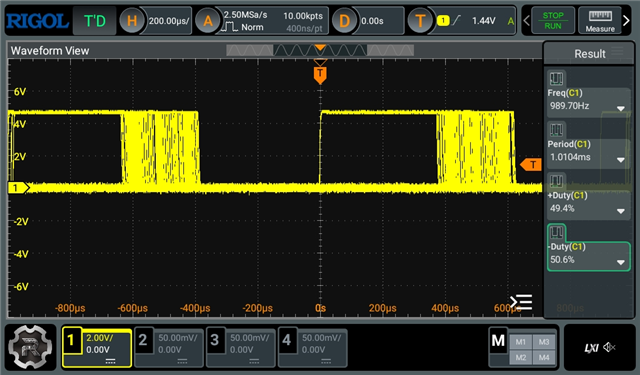Hello everybody!
There is a problem and help is needed.
With the help of hardware timers, I need to generate a signal with a given accuracy. The frequency is 998 Hz. I'm using an example from ncs NRFX-timer. The timer does not fire at one point in time. There is a spread. How can I fix it? The picture shows the variation of the timer trigger time. I am changing the GPIO state in an interrupt. How do I get maximum accuracy?


